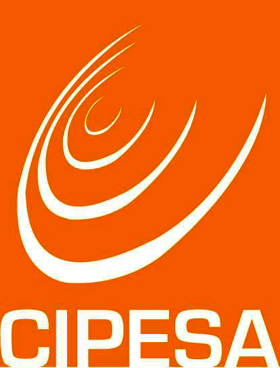
The Collaboration on International ICT Policy in East and Southern Africa (CIPESA), A body that monitors and promotes internet freedoms, primarily in East and Southern African states.
As at the end of the year 2014, Kenya status on Interned Freedoms was ‘Free’. According to Freedom House, an independent watchdog organization dedicated to the expansion of freedom around the world, Kenya was ranked at position 28 globally on Freedom of Net total and at position 12 on violation of user rights.
That was 2014 and it seems like Kenya’s ranking on internet Freedoms will have undergone a significant change by the end of 2015.
Kenya has seen a steady rise in the number of bloggers and Social Media opinion makers who are free to speak their mind on not just Politics but also on social issues affecting Kenyans. The void created by Media houses failing to provide unbiased coverage and lately, lack of in-depth coverage of news and stories happening, has presented an opportunity for bloggers to become Citizen Journalists.
The Kenyan Government is seemingly becoming quite intolerant of voices of dissent and dissident Kenyans who have continued to become more vocal on Social Media and Blogs.
The recent arrest of Robert Alai, Allan Wadi, Mercy Mbindalah(she has since been pardoned), and Abraham Mutai yesterday is a clear indication of a growing trend to silence Kenyan Bloggers and ordinary citizens on Social Media.
Why the internet is becoming an important tool for Free Speech
The internet is a crucial medium through which people can express themselves and share ideas and has become an increasingly important tool through which democracy and human rights activists mobilize and advocate for political, social, and economic reform.
Fearing the power of the new technologies, authoritarian states have devised subtle and not-so-subtle ways to filter, monitor, and otherwise obstruct or manipulate the openness of the internet. Even a number of democratic states have considered or implemented various restrictions in response to the potential legal, economic, and security challenges raised by new media.
This power of the internet and specifically social media became very evident on Sunday 18th January after Kenyans Online rallied each other and demanded the release of Abraham Mutai (@itsmutai), a blogger and whistle blower who was arrested on 17th in Mombasa for his expose of corruption in Isiolo County among other exposes.
Internet Censorship
Internet censorship is the control or suppression of what can be accessed, published, or viewed on the Internet. It may be carried out by governments or by private organizations at the behest of government, regulators, or on their own initiative. Individuals and organizations may engage in self-censorship for moral, religious, or business reasons, to conform to societal norms, due to intimidation, or out of fear of legal or other consequences.
18th January Internet Freedom Day
The arrest of Abraham Mutai coincided with the celebrations to mark Internet Freedom Day which began in 2013 to mark a one year anniversary of the technology community’s Internet blackout over the Stop Online Piracy Act (SOPA) and its sister bill, the PROTECT IP Act (PIPA). SOPA was intended to curb online content piracy.
The Bloggers Association of Kenya (BAKE) had on Thursday 15th January called on all Kenyans online to mark Internet Freedom Day using the Hashtag #iFreeKe. Kenyans were requested to write about something they love on the Internet that they never want to see censored in the form of blog posts, tweets, Facebook updates and/or YouTube videos.
Kenyan bloggers, Social Media users together with activists joined in the call for Free Speech and internet Freedoms online through the hash tags #FreeMutai and #iFreeKe throughout today ( 18th Jan). This prompted the release of Mutai from Police Custody and prompted Kenyans Online to share their thoughts and concerns on the current and declining state of Internet Freedoms in Kenya.
Recommendations for Better Internet laws in Kenya
In a report on the ‘State of Internet Freedoms in Kenya in 2014 ‘, an investigation into the policies and practices defining Internet Freedom in Kenya, Open Net Africa Initiative and The Collaboration on International ICT Policy in East and Southern Africa (CIPESA) made the following recommendations to improve internet Laws in Kenya.
- Kenya should expedite the enactment of the Access to Information law and the Data Protection law. Civil society should be given opportunity to provide meaningful inputs into these laws.
- The circumstances and laws under which individuals are charged over their online activities need to be clarified. The National Cohesion and Integration Act has improperly been applied to take action against individuals accused of propagating hate speech.
- There should be clear definitions of what constitutes hate speech and ‘causing annoyance’ as grounds for taking legal action against individuals.
- Conversations on what constitutes free speech and the distinction between blind control and respect for freedom of expression online should be fostered and should draw in civil society, the media, religious organisations and government departments.
- Create awareness among the media and human rights defenders on internet freedoms and encourage development of a network of advocates and educators on online freedoms.
- The NCIC, police and other security organs should make public all results of their surveillance of citizens’ communications, as well as investigations and prosecutions of hate speech and other offences and crimes committed via digital technologies. The law should clearly specify the responsibilities of intermediaries and other parties in relation to filtering, removing and blocking content, the steps that need to be followed in these processes as well as appeal processes where there is an attempt to filter, remove or block a site or content
